Officials with the U.S. Forest Service have taken a decisive step toward long-term protection of the Boundary Waters Canoe Area Wilderness. On Wednesday, the agency announced it is seeking to block mining on federal lands upstream of the wilderness.
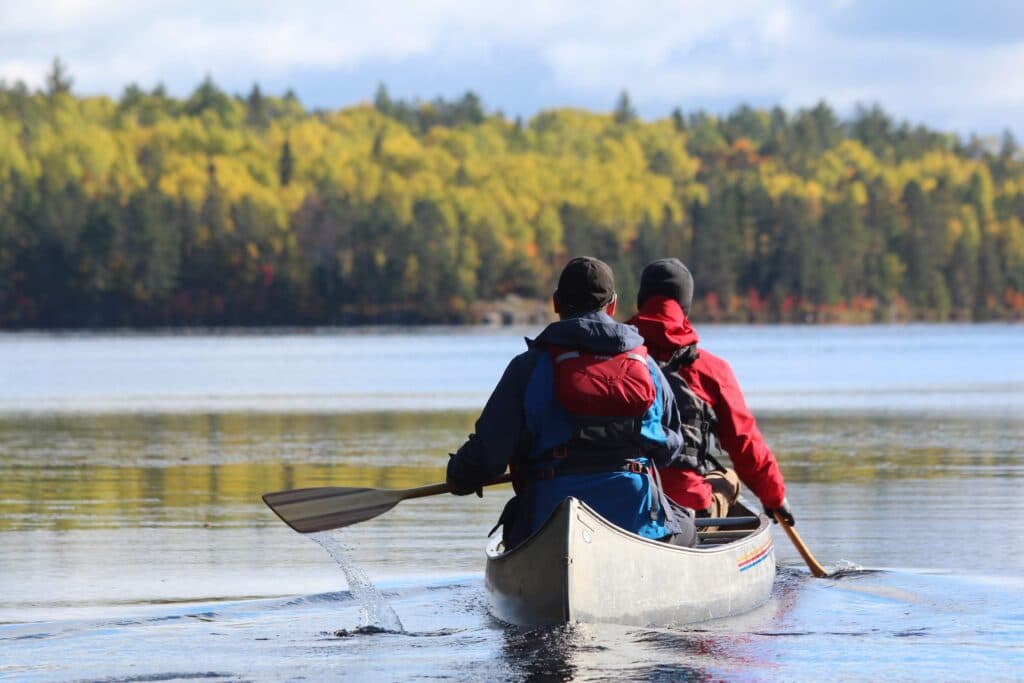
If approved, the move would put 223,000 acres off limits, including crucial sites where Chilean mining company Antofagasta PLC is planning its Twin Metals mine. It would not affect the PolyMet mine proposal, because the mine site is located in the Lake Superior watershed, not the Rainy River basin.
The plan picks up where the Obama administration left off, which was halted during the Trump presidency. It restarts a process that would study the risks of mining in the Rainy River watershed, which includes the Boundary Waters, downstream of the proposed Twin Metals mine site.
Current Agriculture Secretary Tom Vilsack, who oversees the Forest Service, held the same post until the end of the Obama presidency and helped initiate the original withdrawal.
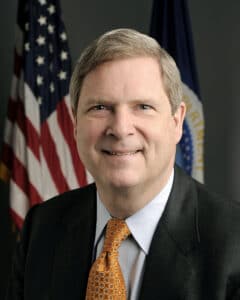
“The Boundary Waters area is an irreplaceable natural resource renowned for high quality fishing, wildlife viewing, and recreational opportunities,” said Vilsack. “I have asked the Forest Service to work with the Bureau of Land Management to complete a careful environmental analysis and engage the public on whether future mining should be authorized on any federal land adjacent to this spectacular and unique wilderness resource.”
The process that Vilsack’s agency initiated in late 2016 was cancelled in 2018. The 24-month study of the issue was halted just four months shy of completion.
Now, the agency will stop issuing any new leases for federally-owned minerals in the wilderness watershed for two years, while completing a study of whether or not a 20-year moratorium is warranted. Similar protections have previously been put in place around the Grand Canyon and Yellowstone National Park.
The Obama administration also refused to renew mineral leases Twin Metals claims give it rights to explore and develop a mine near the South Kawishiwi River, but those too were reinstated during the Trump years. There has been no word yet on how the government might deal with the issue of the leases. Twin Metals acquired the rights from other mining companies only after decades of disuse.
Celebrations and criticisms
The decision came as a significant victory for wilderness advocates. Rep. Betty McCollum (D-MN4), who has previously introduced legislation to permanently prohibit mining in the area, celebrated it in a statement. She also referred to the Trump administration’s refusal to share the incomplete results of the cancelled study, and unethical lobbying and government decision-making.
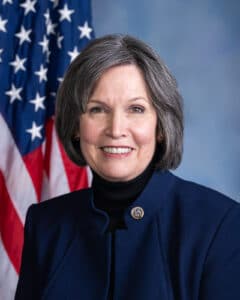
“After years of broken promises and ongoing obstruction of taxpayer-funded data from the prior administration, I am pleased that President Biden is committed to completing the necessary analysis to understand the impacts that sulfide-ore mining could have on this priceless reserve of fresh water, the biodiverse habitat it supports, and the economic livelihood of the surrounding community. All of us who care deeply about protecting the pristine Boundary Waters and its watershed for future generations look forward to seeing the results of this comprehensive study.”
Advocates who have been pushing for such a move for more than five years also said it was a win for the wilderness.
“You don’t allow America’s most toxic industry next to America’s most popular Wilderness,” said Becky Rom, National Chair of the Campaign to Save the Boundary Waters. “The Boundary Waters is a paradise of woods and water. It is an ecological marvel, a world-class outdoor destination, and an economic engine for hundreds of businesses and many thousands of people. This is a great first step on the pathway to permanent protection. The appropriate next step for the administration is to revoke the two Twin Metals leases that the Trump administration unlawfully reinstated.”
Antofagasta’s subsidiary Twin Metals Minnesota released a statement expressing disappointment. The company is seeking to operate an underground mine a couple miles from the edge of the wilderness. It would store waste next to Birch Lake, a reservoir which drains toward the Boundary Waters.
“We are working to determine the best path forward to continue advancing our proposed world-class underground copper, nickel, cobalt and platinum group metals mine,” the company said. “We are firmly dedicated to the communities of northeast Minnesota and to advancing a sustainable mining project that will bring much-needed economic growth to our region, in addition to the opportunity to responsibly develop the critical minerals needed for our global efforts in combatting the climate crisis.”
Antofagasta submitted its initial proposal for environmental review in Dec. 2019. It is currently being assessed by state and federal agencies in a separate process. The new review will analyze whether or not copper-nickel mining, which has a track record of water pollution, can be conducted safely upstream of the popular wilderness.
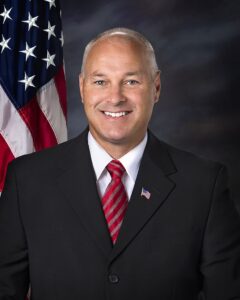
Rep. Pete Stauber, pro-mining Republican who represents northeastern Minnesota in the U.S. House of Representatives, said Democrats made the decision despite his efforts.
“At the beginning of the year, I sent a letter to President Biden opposing Deb Haaland for Interior Secretary, citing concerns over her longstanding anti-mining position,” Stauber said. “Meanwhile, Biden also nominated Tom Vilsack for Agriculture Secretary, who is on the record for his opposition to mining. My concerns were met with silence from the President.”
The Twin Metals mine would process 20,000 tons of ore per day at full capacity, digging 400 to 4,500 feet below the surface. Half the mine’s waste would be disposed of in a mountainous pile on the east side of Birch Lake, and the other half would be put back underground.
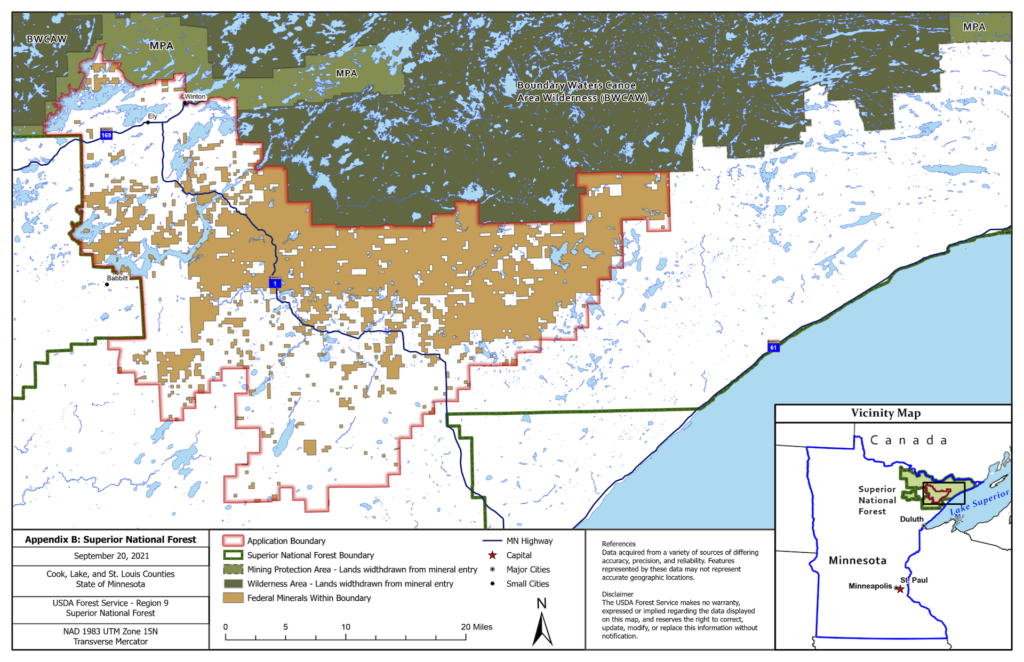
Wilderness water worries
Unlike Minnesota’s traditional iron mining, copper-nickel ore contains sulfides which can turn into sulfuric acid when exposed to air and water. Sulfuric acid leaches metals from the rock and easily contaminates anything downstream.
The pollution can kill fish or make them unsafe to eat, harm wild rice, and much more. That possibility is unacceptable to local Ojibwe people.
“Indigenous peoples sought sustenance and spirituality from this place from time immemorial,” said Professor Tadd M. Johnson, Esq., Bois Forte Tribal Elder, MN .”On the outskirts of the Boundary Waters, and inside of this wilderness, my family lived and thrived for generations. This is a place of pristine air, clear water, tall pines, wildlife, ancient cliffs and adventure. Those who came before us had the wisdom to preserve it, and we must respect their wisdom. It must be preserved.”
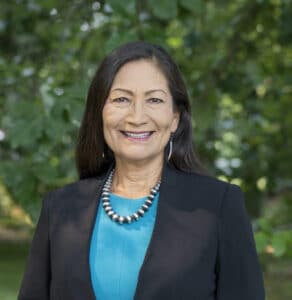
In a significant first, an Indigenous person will make important decisions in the process. Secretary of the Interior Deb Haaland is an enrolled member of the Laguna Pueblo Tribe of New Mexico. In her position, she also oversees the Bureau of Land Management, which manages mineral rights controlled by the federal government.
“A place like the Boundary Waters should be enjoyed by and protected for everyone, not only today but for future generations,” said Haaland. “Today the Biden Administration is taking an important and sensible step to ensure that we have all the science and the public input necessary to make informed decisions about how mining activities may impact this special place.”
For the next two years, no new mineral leases, prospecting permits, or other new mining activities will be allowed in the Rainy River watershed while the Bureau of Land Management works with the Forest Service to study the issue. Existing leases and permits will still be in effect, and activities may be conducted on minerals on county, state, or private lands.
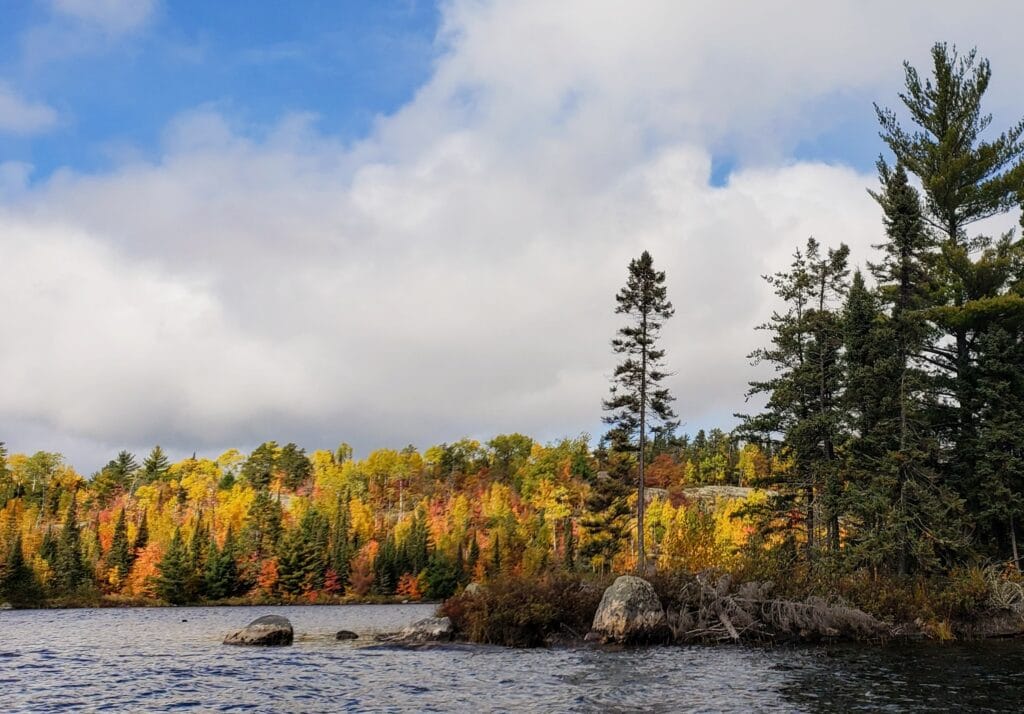
Public input plans
The Forest Service will accept public input on its application to prohibit mining on the minerals in question beginning Oct. 21, when the document is published in the Federal Register.
Comments on the withdrawal proposal can be sent to F. David Radford, Deputy State Director of Geospatial Services, BLM Eastern States Office, RE: Superior National Forest Withdrawal Application, 5275 Leesburg Pike, Falls Church,Virginia 22041; or by email to BLM_ES_Lands@blm.gov (please include Superior National Forest Withdrawal Application in the subject).
More information:
- Biden Administration Takes Action to Complete Study of Boundary Waters Area Watershed – U.S. Department of Agriculture
- Application: Withdrawal and Segregation of Federal Lands, Cook, Lake, and Saint Louis Counties, MN – Bureau of Land Management
- Biden administration starts process to ban copper mining next to the Boundary Waters – Campaign to Save the Boundary Waters

